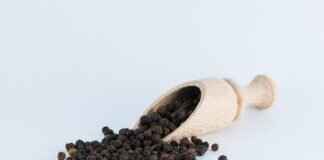This article explores the remarkable health benefits of chia seeds, highlighting their impressive nutritional profile and offering practical tips on how to incorporate them into your daily diet for enhanced wellness.
What Are Chia Seeds?
Chia seeds are small, black seeds derived from the Salvia hispanica plant, which is native to Central America. These seeds have gained popularity due to their exceptional nutrient content and versatility in various culinary applications.
Nutritional Profile of Chia Seeds
Chia seeds are a nutrient-dense food, packed with essential components such as:
- Omega-3 Fatty Acids
- Protein
- Dietary Fiber
- Antioxidants
This unique combination makes chia seeds a powerhouse of health benefits suitable for any diet.
Health Benefits of Chia Seeds
Incorporating chia seeds into your diet can lead to a variety of health improvements, including:
- Improved Digestion: Their high fiber content promotes bowel regularity and overall gut health.
- Weight Management: Chia seeds can help control appetite, aiding in weight loss by providing a sense of fullness.
- Enhanced Energy Levels: The combination of protein and healthy fats provides sustained energy throughout the day.
How to Incorporate Chia Seeds into Your Diet
There are numerous delicious ways to add chia seeds to your meals:
- Chia Seed Pudding: Mix chia seeds with milk or a dairy alternative and let them soak overnight for a nutritious breakfast.
- Adding to Smoothies: Blend chia seeds into your smoothies to enhance their nutritional value and texture.
Potential Side Effects of Chia Seeds
While generally safe, some individuals may experience digestive discomfort or allergic reactions. It’s important to consume chia seeds in moderation to avoid:
- Digestive Issues: Overconsumption can lead to bloating or gas.
- Allergic Reactions: Although rare, some people may experience skin rashes or gastrointestinal discomfort.
Conclusion
Chia seeds are a highly nutritious addition to any diet, offering numerous health benefits when consumed in moderation. By incorporating them into your meals, you can enhance your overall wellness and vitality.

What Are Chia Seeds?
Chia seeds are small, black seeds derived from the Salvia hispanica plant, which is native to the regions of Central America. These tiny seeds have gained immense popularity in recent years due to their impressive nutritional profile and versatility in culinary applications. Rich in essential nutrients, chia seeds serve as a valuable addition to various dishes, from smoothies to baked goods, enhancing both flavor and health benefits.
Historically, chia seeds were a staple in the diets of ancient civilizations, including the Aztecs and Mayans, who recognized their energy-boosting properties. Today, these seeds are celebrated for their ability to absorb water, forming a gel-like substance that can be used in numerous recipes.
| Nutritional Component | Amount per 1 oz (28g) |
|---|---|
| Calories | 138 |
| Protein | 4.7g |
| Fat | 8.6g |
| Fiber | 10.6g |
| Omega-3 Fatty Acids | 5g |
With their high content of omega-3 fatty acids, protein, and dietary fiber, chia seeds are often regarded as a superfood. They are particularly known for their ability to promote digestive health and support weight management. Additionally, these seeds are rich in antioxidants, which help combat oxidative stress and inflammation in the body.
Incorporating chia seeds into your diet can be simple and enjoyable. They can be sprinkled on salads, blended into smoothies, or used to create delicious puddings. The versatility of chia seeds makes them an excellent choice for anyone looking to enhance their nutritional intake.
In summary, chia seeds are not only a source of essential nutrients but also a versatile ingredient that can elevate your meals. Their historical significance combined with modern nutritional insights makes them a worthwhile addition to any diet.
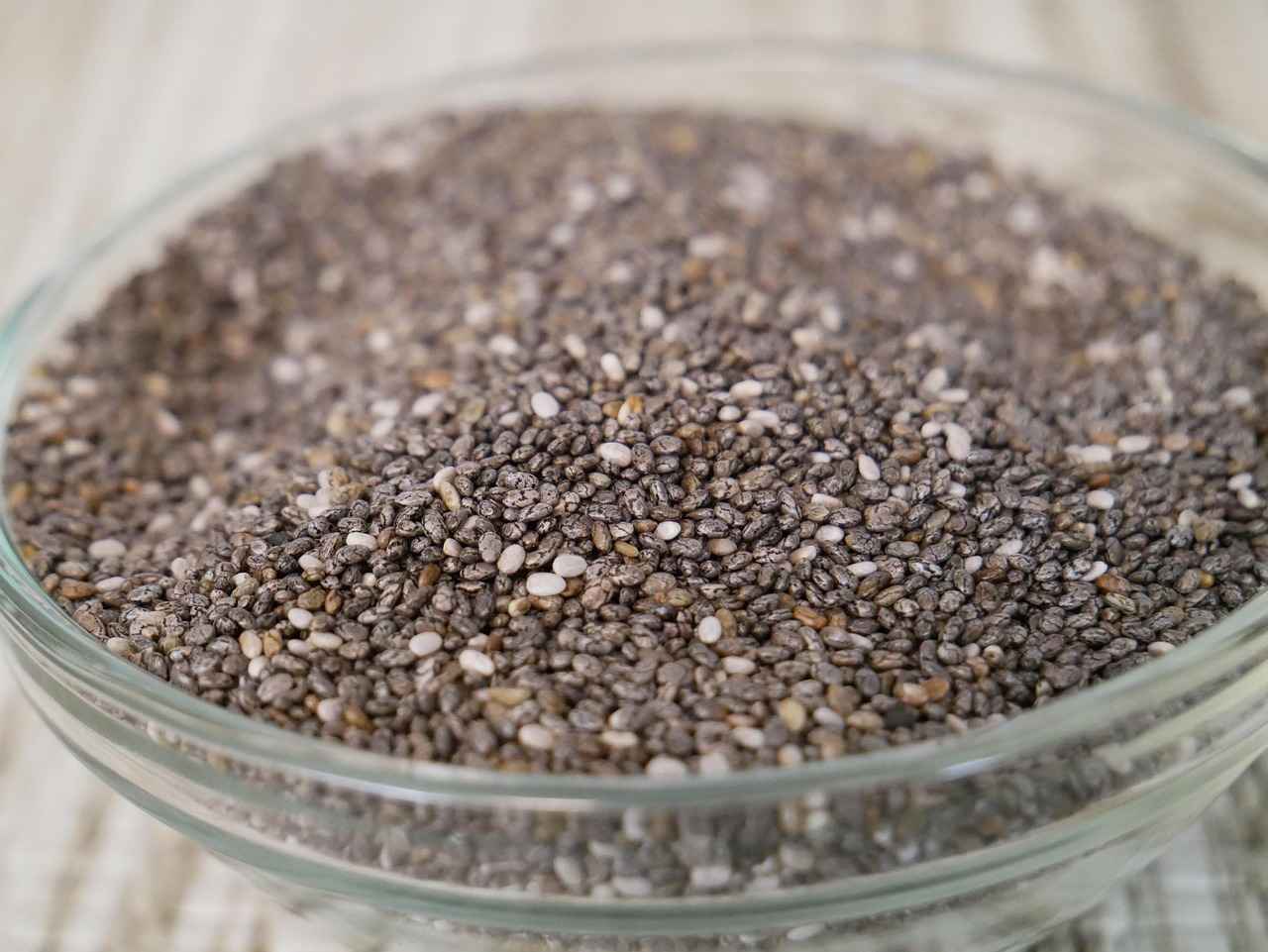
Nutritional Profile of Chia Seeds
Chia seeds have gained immense popularity in the health and wellness community due to their impressive nutritional profile. These tiny seeds, derived from the Salvia hispanica plant, are not only versatile but also packed with essential nutrients that can significantly enhance overall health.
Chia seeds are particularly rich in omega-3 fatty acids, which are vital for maintaining heart health and reducing inflammation. Their high content of protein and fiber also contributes to their status as a superfood, making them an ideal choice for those looking to improve their diet.
| Nutrient | Amount per 28 grams (1 oz) |
|---|---|
| Calories | 138 |
| Protein | 4.7 grams |
| Fat | 8.6 grams |
| Carbohydrates | 12 grams |
| Fiber | 10.6 grams |
| Omega-3 Fatty Acids | 5 grams |
The high fiber content in chia seeds aids in digestion and promotes feelings of fullness, making them a great addition for those managing their weight. Additionally, chia seeds are an excellent source of antioxidants, which help combat oxidative stress and reduce the risk of chronic diseases.
Incorporating chia seeds into your daily meals is simple. You can sprinkle them on salads, blend them into smoothies, or prepare delicious chia seed pudding. This versatility allows you to enjoy their health benefits while enhancing the flavor and texture of your dishes.
In conclusion, the nutritional profile of chia seeds makes them a valuable addition to any diet. With their combination of omega-3 fatty acids, protein, fiber, and antioxidants, these seeds can support overall health and well-being.
Omega-3 Fatty Acids
are essential nutrients that play a pivotal role in maintaining overall health. They are particularly recognized for their significant benefits to heart health and their ability to reduce inflammation throughout the body. One of the best sources of these vital fatty acids is chia seeds, which are tiny yet potent seeds derived from the Salvia hispanica plant.
Chia seeds are a powerhouse of nutrition, containing approximately 5 grams of omega-3 fatty acids per ounce. These plant-based omega-3s, specifically in the form of alpha-linolenic acid (ALA), contribute to cardiovascular health by helping to lower cholesterol levels and reduce blood pressure. Regular consumption of chia seeds can lead to improved heart function and a decreased risk of heart disease.
Moreover, the anti-inflammatory properties of omega-3 fatty acids found in chia seeds are crucial for combating chronic inflammation, which is linked to various health issues such as arthritis, diabetes, and even cancer. By incorporating chia seeds into your diet, you can support your body’s natural defense mechanisms against inflammation.
| Health Benefits of Omega-3 Fatty Acids | Details |
|---|---|
| Heart Health | Lowers cholesterol and blood pressure, reducing heart disease risk. |
| Anti-Inflammatory | Helps reduce inflammation linked to chronic diseases. |
| Brain Function | Supports cognitive health and may improve mood. |
Incorporating chia seeds into your diet is simple and versatile. You can add them to smoothies, yogurt, or oatmeal, or use them to create delicious chia seed puddings. The seeds can absorb liquid and expand, creating a gel-like texture that enhances various dishes.
In conclusion, the in chia seeds are not just beneficial for heart health; they also play a critical role in reducing inflammation and supporting overall wellness. By adding these tiny seeds to your daily meals, you can harness their full potential for a healthier life.
Heart Health Benefits
Chia seeds are increasingly recognized for their remarkable omega-3 fatty acid content, which plays a crucial role in maintaining heart health. These tiny seeds, derived from the Salvia hispanica plant, are a rich source of alpha-linolenic acid (ALA), a type of omega-3 that is essential for cardiovascular well-being.
Research indicates that incorporating chia seeds into your diet can significantly lower cholesterol levels. The soluble fiber in chia seeds helps to bind cholesterol in the digestive system, reducing its absorption into the bloodstream. This mechanism can contribute to lower levels of low-density lipoprotein (LDL) cholesterol, often referred to as “bad cholesterol,” thereby decreasing the risk of atherosclerosis and other heart-related diseases.
Moreover, the anti-inflammatory properties of omega-3 fatty acids found in chia seeds can further support heart health. Chronic inflammation is a contributing factor to many cardiovascular issues, including heart attacks and strokes. By reducing inflammation, chia seeds can help maintain healthy blood vessels and improve overall circulation.
Additionally, chia seeds are beneficial for regulating blood pressure. The combination of fiber, protein, and omega-3 fatty acids can help to maintain stable blood pressure levels, reducing the strain on the heart. This is particularly important for individuals who may have hypertension or are at risk of developing high blood pressure.
Incorporating chia seeds into your daily routine can be simple and enjoyable. Here are a few easy ways to add them to your diet:
- Add chia seeds to smoothies for a nutritious boost.
- Sprinkle them on salads or yogurt for added texture and health benefits.
- Use chia seeds to make healthy puddings or energy bars.
In conclusion, the heart health benefits of chia seeds are substantial. By lowering cholesterol levels, reducing inflammation, and helping to regulate blood pressure, these seeds can be a valuable addition to a heart-healthy diet. Embracing chia seeds as part of your nutrition can promote overall cardiovascular health and enhance your well-being.
Anti-Inflammatory Properties
Anti-Inflammatory Properties of Chia Seeds
Chia seeds, derived from the Salvia hispanica plant, have gained popularity not only for their nutritional value but also for their remarkable . Chronic inflammation is a root cause of many serious health conditions, including heart disease, diabetes, and autoimmune disorders. Incorporating chia seeds into your diet can be an effective strategy to help mitigate these risks.
Understanding Inflammation
Inflammation is the body’s natural response to injury or infection. However, when it becomes chronic, it can lead to significant health issues. Research indicates that diets rich in anti-inflammatory foods can help reduce inflammation levels in the body, promoting better health outcomes.
How Chia Seeds Combat Inflammation
- Omega-3 Fatty Acids: Chia seeds are one of the best plant-based sources of omega-3 fatty acids, particularly alpha-linolenic acid (ALA). These fatty acids are known for their ability to reduce inflammation and lower the risk of chronic diseases.
- Antioxidants: Chia seeds are packed with antioxidants that help fight oxidative stress in the body. By neutralizing free radicals, these antioxidants contribute to reducing inflammation.
- High Fiber Content: The fiber in chia seeds supports digestive health and can help regulate the body’s inflammatory responses, contributing to overall well-being.
Incorporating Chia Seeds into Your Diet
Adding chia seeds to your meals is simple and versatile. Here are a few easy ways to include them:
- Add them to smoothies for a nutrient boost.
- Sprinkle them on salads or yogurt for added texture.
- Use them in baking, such as in bread or muffins, for enhanced nutrition.
Conclusion
Incorporating chia seeds into your diet can significantly contribute to reducing inflammation and improving overall health. With their rich nutrient profile and versatility, chia seeds are an excellent addition to an anti-inflammatory diet. By making small changes to your meals, you can harness the power of these tiny seeds for better health.
High Fiber Content
in chia seeds is one of their most remarkable attributes, contributing significantly to overall health and wellness. These tiny seeds are packed with an impressive amount of dietary fiber, which plays a crucial role in promoting digestive health and supporting weight management.
Chia seeds contain approximately 34 grams of fiber per 100 grams, making them one of the richest sources of fiber available. This high fiber content is beneficial in several ways:
- Promotes Digestive Health: The soluble fiber in chia seeds absorbs water, forming a gel-like substance in the stomach. This not only helps to regulate bowel movements but also aids in preventing constipation, ensuring a healthy digestive system.
- Enhances Satiety: By providing a feeling of fullness, chia seeds can help control appetite. This can be particularly useful for individuals looking to manage their weight, as it reduces the likelihood of overeating.
- Supports Gut Health: The fiber in chia seeds acts as a prebiotic, feeding beneficial gut bacteria. A healthy gut microbiome is essential for overall health, influencing everything from digestion to immune function.
Incorporating chia seeds into your diet can be easy and versatile. They can be added to smoothies, yogurt, or baked goods, enhancing both flavor and nutrition. For those looking to increase their fiber intake, chia seeds provide a simple and effective solution.
In conclusion, the high fiber content in chia seeds not only supports digestive health but also plays a vital role in weight management by promoting a sense of fullness. By integrating these seeds into your meals, you can enjoy their numerous health benefits while enhancing your overall diet.
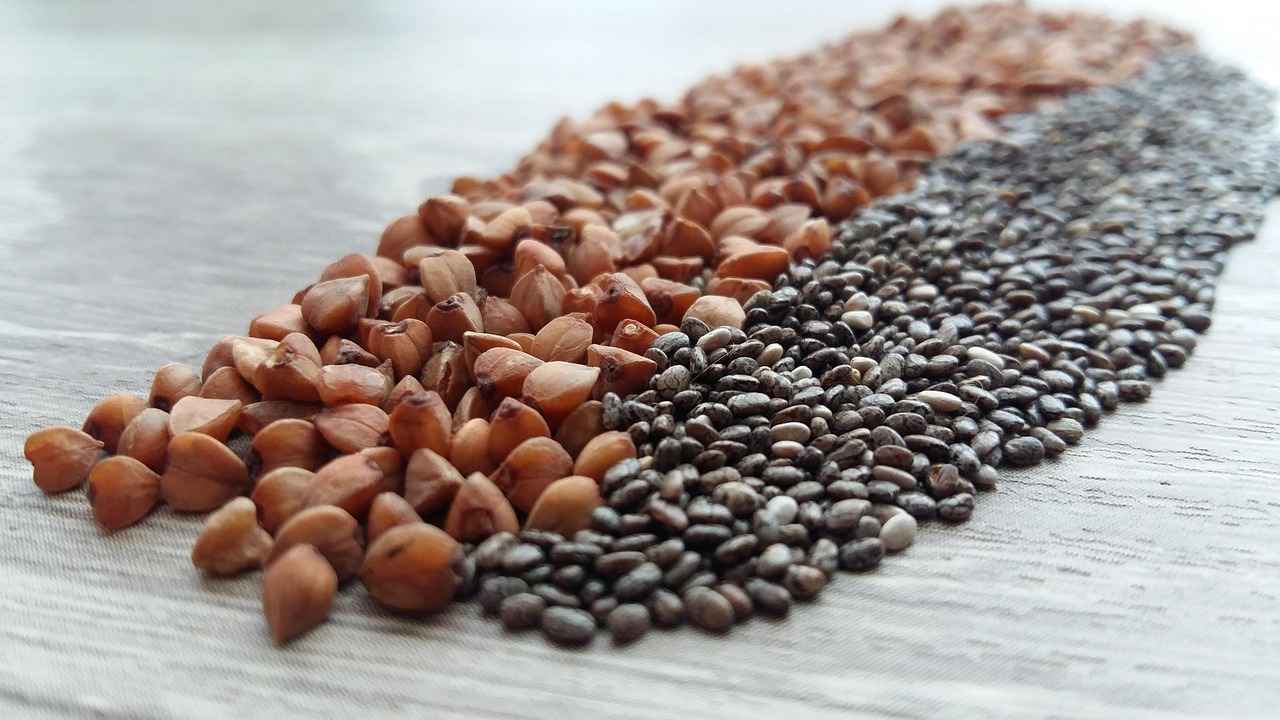
Health Benefits of Chia Seeds
Incorporating chia seeds into your daily diet can lead to a myriad of health benefits that significantly enhance overall wellness. These tiny seeds, derived from the Salvia hispanica plant, are not only versatile in culinary applications but also packed with essential nutrients that support various bodily functions.
Improved Digestion
Chia seeds are an excellent source of dietary fiber, which plays a crucial role in promoting digestive health. The fiber content helps to regulate bowel movements, preventing constipation and promoting a healthy gut. Additionally, chia seeds can act as a prebiotic, feeding beneficial gut bacteria and supporting a balanced microbiome.
Weight Management
For those looking to manage their weight, chia seeds can be a valuable ally. Their high fiber and protein content contribute to a feeling of fullness, which can help regulate appetite and curb unhealthy snacking. By incorporating chia seeds into meals, individuals can better control their caloric intake while still feeling satisfied.
Enhanced Energy Levels
Chia seeds are also known for their ability to provide sustained energy. They contain a unique combination of carbohydrates, protein, and healthy fats, making them an ideal food for those needing an energy boost throughout the day. Whether added to smoothies or consumed as a snack, chia seeds can help maintain energy levels during busy days.
Rich in Nutrients
These seeds are a powerhouse of nutrients, including omega-3 fatty acids, antioxidants, and essential minerals like calcium and magnesium. Omega-3s are particularly beneficial for heart health, while antioxidants help combat oxidative stress in the body.
Conclusion
In summary, the health benefits of chia seeds are extensive, ranging from improved digestion to enhanced energy levels. By integrating these seeds into your diet, you can enjoy a variety of health advantages that contribute to overall well-being. Remember to start with small amounts to allow your body to adjust to the increased fiber intake and enjoy the numerous benefits chia seeds have to offer.
Weight Management
is a crucial aspect of overall health, and incorporating chia seeds into your diet can be a game changer. These tiny seeds are not just a trendy superfood; they offer significant benefits that can assist in regulating appetite and supporting your weight loss efforts.
One of the remarkable features of chia seeds is their high fiber content. A single ounce (about 28 grams) of chia seeds contains approximately 11 grams of fiber. This fiber absorbs water and expands in your stomach, creating a feeling of fullness that can help curb your appetite. By reducing hunger pangs, chia seeds can make it easier to stick to a calorie-controlled diet.
In addition to fiber, chia seeds are also a good source of plant-based protein. Protein is known for its satiating effects, which can help you feel satisfied for longer periods. This combination of fiber and protein is particularly effective for those looking to manage their weight, as it can lead to decreased overall calorie intake.
Moreover, chia seeds are low in calories and can be easily incorporated into various meals. You can sprinkle them on salads, blend them into smoothies, or use them as a thickening agent in recipes. This versatility makes it simple to add chia seeds to your daily routine without much effort.
For those who struggle with cravings or emotional eating, chia seeds may also help. Their ability to stabilize blood sugar levels can prevent spikes and crashes that often lead to unhealthy snacking. By keeping your blood sugar levels steady, you can maintain a more balanced mood and reduce the likelihood of reaching for sugary snacks.
In conclusion, the high fiber and protein content in chia seeds can play a significant role in weight management. By incorporating these seeds into your diet, you can help regulate your appetite, reduce hunger pangs, and ultimately support your weight loss goals.
Digestive Health
plays a crucial role in our overall well-being, and one of the most effective natural solutions for enhancing gut function is the incorporation of chia seeds into your diet. These tiny seeds are not just a trendy superfood; they offer a multitude of benefits that can significantly improve your digestive system.
Chia seeds are rich in dietary fiber, which is essential for maintaining regular bowel movements. A single ounce (about 28 grams) of chia seeds contains approximately 11 grams of fiber, which is more than one-third of the daily recommended intake. This high fiber content helps to bulk up stool and facilitates its passage through the digestive tract, thereby preventing constipation.
Moreover, chia seeds act as a prebiotic. Prebiotics are substances that promote the growth of beneficial gut bacteria. By consuming chia seeds, you are effectively feeding these good bacteria, which in turn can enhance gut health and improve digestion. A healthy gut microbiome is linked to various health benefits, including better nutrient absorption, improved immune function, and even enhanced mood.
In addition to their fiber and prebiotic properties, chia seeds can absorb up to 12 times their weight in water. This gel-like substance formed when chia seeds are soaked can help to keep you hydrated and provide a feeling of fullness, which can be beneficial for weight management.
Incorporating chia seeds into your diet is simple. They can be added to smoothies, yogurts, salads, or even baked goods. For those looking to enhance their gut health, consider starting your day with a chia seed pudding or sprinkling them on top of your breakfast cereal.
In conclusion, chia seeds are an excellent addition to any diet aimed at improving . Their high fiber content, prebiotic properties, and ability to promote hydration make them a versatile and powerful food for enhancing gut function. By including chia seeds in your daily meals, you can take significant steps toward achieving better digestive health.
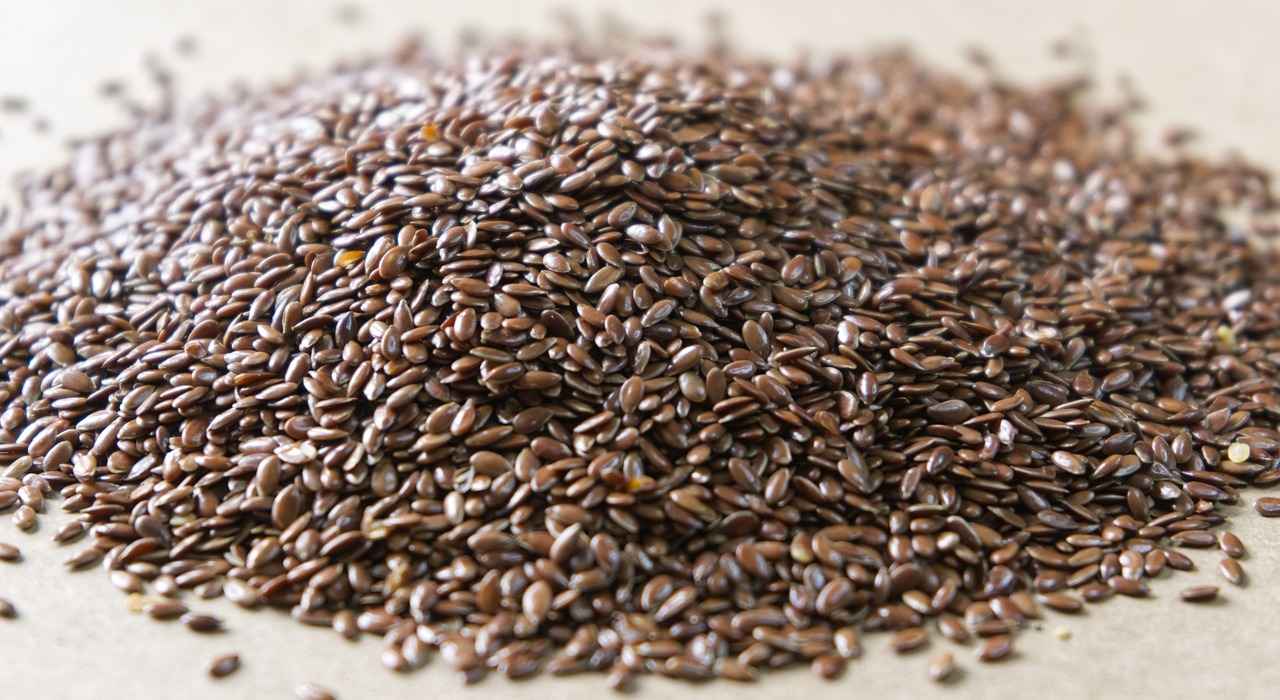
How to Incorporate Chia Seeds into Your Diet
Incorporating chia seeds into your diet can be a delicious and nutritious endeavor. These tiny seeds are not only versatile but also packed with health benefits. Here are some creative ways to add them to your daily meals:
- Smoothies: Boost your morning smoothie by adding a tablespoon of chia seeds. They blend well and enhance the texture while providing a rich source of omega-3 fatty acids and fiber.
- Chia Seed Pudding: A popular choice for breakfast or dessert, chia seed pudding can be made by mixing chia seeds with milk or a dairy alternative. Let it sit overnight in the refrigerator to thicken, and add your favorite fruits and sweeteners.
- Baked Goods: Incorporate chia seeds into your baking recipes. They can be added to muffins, bread, or pancakes for an extra crunch and nutritional boost. Simply replace a portion of the flour with ground chia seeds for added fiber.
- Salads: Sprinkle chia seeds on top of salads for added texture and nutrients. They can absorb the dressing, adding a unique flavor and nutritional punch.
- Soups and Stews: Add chia seeds to soups and stews as a thickening agent. They not only enhance the consistency but also provide additional health benefits.
Tips for Using Chia Seeds:
- Start with small amounts to see how your body reacts.- Soak chia seeds in water or juice before consuming to aid digestion.- Store chia seeds in a cool, dry place to maintain freshness.
By exploring these various methods of incorporating chia seeds into your meals, you can enjoy their numerous health benefits while enhancing the flavor and texture of your dishes. Whether you prefer them in smoothies, puddings, or baked goods, chia seeds are a fantastic addition to any diet!
Chia Seed Pudding
has gained immense popularity as a nutritious and versatile dish that can be enjoyed at any time of the day. This delightful treat is not only easy to prepare but also packed with essential nutrients, making it a favorite among health enthusiasts.
To create a basic chia seed pudding, simply combine chia seeds with your choice of milk or a dairy alternative, such as almond or coconut milk. The ratio typically recommended is 1/4 cup of chia seeds to 1 cup of liquid. Once mixed, let the mixture sit for a few minutes to allow the seeds to absorb the liquid and then stir again to prevent clumping. Cover the bowl and place it in the refrigerator to soak overnight. This soaking process is crucial as it allows the chia seeds to expand and develop a gel-like consistency, resulting in a creamy pudding.
One of the best aspects of chia seed pudding is its versatility. You can customize it with various flavors and toppings to suit your taste. For instance, consider adding a splash of vanilla extract, a drizzle of honey or maple syrup for sweetness, and fresh fruits such as berries, bananas, or mangoes for added flavor and nutrition. Nuts, seeds, and granola can also be sprinkled on top for an extra crunch.
Moreover, chia seed pudding is an excellent source of omega-3 fatty acids, fiber, and protein, making it a wholesome breakfast or snack option. The high fiber content helps promote digestive health, while the protein aids in muscle repair and satiety, making it a perfect choice for those looking to manage their weight.
In conclusion, chia seed pudding is not only a simple and delicious way to enjoy chia seeds, but it also offers a myriad of health benefits. Experimenting with different ingredients can make this dish a delightful staple in your diet, ensuring you reap the nutritional rewards of these tiny seeds.
Adding to Smoothies
Adding chia seeds to smoothies is an excellent way to enhance their nutritional profile while also improving texture. These tiny seeds, derived from the Salvia hispanica plant, are not only versatile but also packed with essential nutrients that can transform your smoothie into a superfood.
When you add chia seeds to your smoothies, you introduce a rich source of omega-3 fatty acids, which are vital for maintaining heart health. These healthy fats can help reduce inflammation and lower cholesterol levels, making your smoothie not just delicious but also beneficial for your cardiovascular system.
Moreover, chia seeds are incredibly high in dietary fiber. Just a single tablespoon can provide a significant portion of your daily fiber intake. This fiber aids in digestion, promotes a feeling of fullness, and can assist in weight management. By incorporating chia seeds into your morning smoothie, you can enjoy a satisfying meal that keeps hunger at bay.
In addition to their health benefits, chia seeds also contribute a unique gel-like texture when soaked. This characteristic can help thicken your smoothie, giving it a creamy consistency without the need for added sugars or unhealthy thickeners. This makes chia seeds an ideal addition for those looking to create a filling breakfast or snack.
To incorporate chia seeds into your smoothies, simply add a tablespoon or two to your blender along with your favorite fruits, vegetables, and liquids. For an extra nutrient boost, consider combining them with ingredients like spinach, bananas, or almond milk. The possibilities are endless!
In conclusion, adding chia seeds to your smoothies not only boosts their nutritional value but also enhances their texture, making for a satisfying and healthful beverage. Start experimenting with different combinations today to discover your perfect smoothie blend!
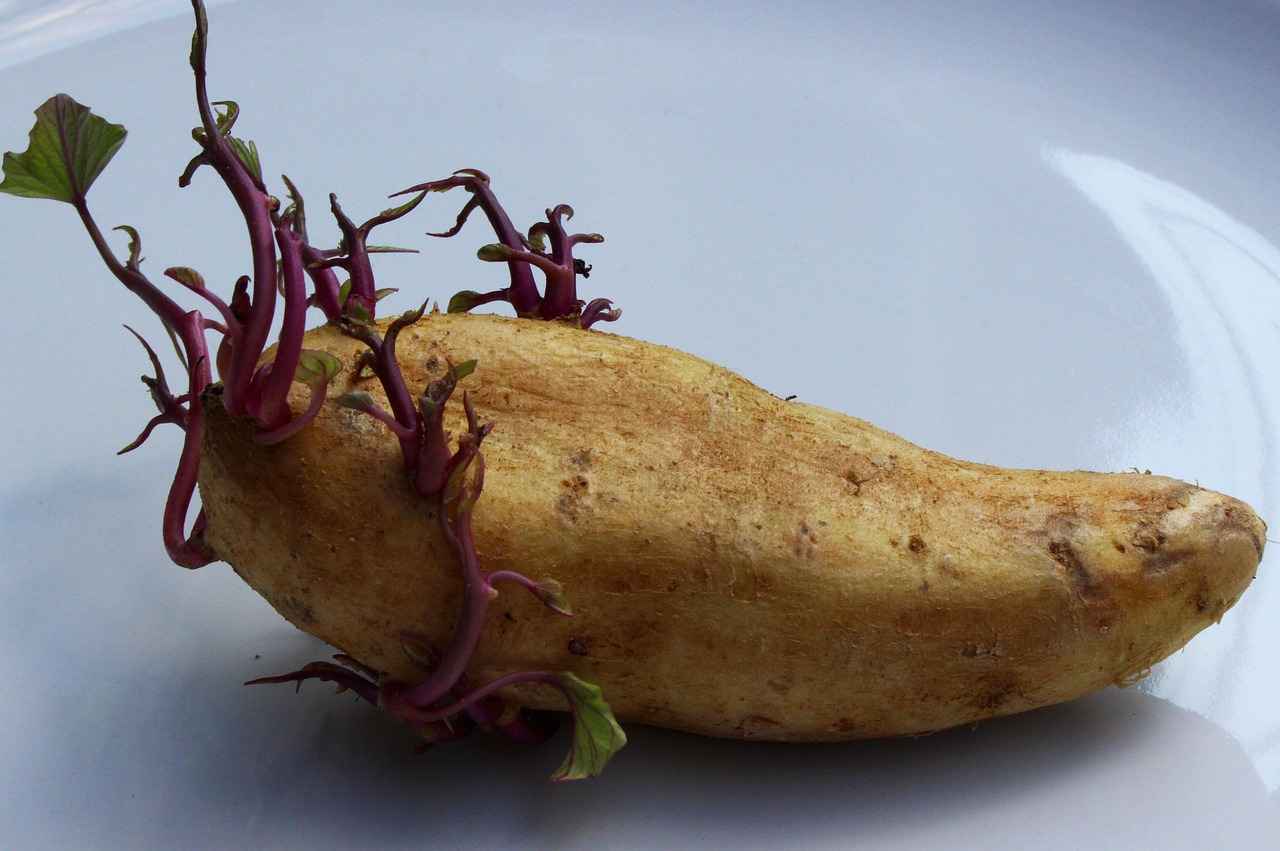
Potential Side Effects of Chia Seeds
Chia seeds are celebrated for their numerous health benefits, but it is essential to consider that they may not be suitable for everyone. While generally considered safe, some individuals might encounter digestive issues or allergic reactions when consuming chia seeds. Therefore, moderation is crucial to enjoy their benefits without adverse effects.
| Side Effect | Description |
|---|---|
| Digestive Issues | Some people may experience bloating, gas, or discomfort, particularly if they consume large quantities of chia seeds without gradually increasing their fiber intake. |
| Allergic Reactions | Though rare, some individuals may develop allergic reactions, which can include skin rashes, itching, or gastrointestinal distress. If you experience these symptoms, it is advisable to discontinue use and consult a healthcare professional. |
To minimize the risk of digestive discomfort, it is recommended to start with a small amount of chia seeds and gradually increase the intake. This approach allows your digestive system to adapt to the increased fiber content. Additionally, it is essential to drink plenty of water when consuming chia seeds, as they absorb liquid and expand in the stomach.
- Moderation is Key: Incorporate chia seeds into your diet gradually.
- Stay Hydrated: Ensure adequate fluid intake to aid digestion.
- Monitor Reactions: Pay attention to how your body responds and adjust accordingly.
In conclusion, while chia seeds are a nutritious addition to many diets, it is vital to be aware of potential side effects. By consuming them in moderation and being mindful of your body’s reactions, you can enjoy their health benefits without discomfort.
Digestive Issues
related to chia seeds can be a concern for some individuals, particularly those who are not accustomed to a high-fiber diet. While chia seeds are celebrated for their numerous health benefits, including their high fiber content and ability to promote digestive health, it is essential to approach their consumption with caution.
When introducing chia seeds into your diet, moderation is key. Some people may experience bloating or gas after consuming large quantities of these tiny seeds, especially if their digestive system is not used to processing significant amounts of fiber. This reaction can occur because chia seeds expand in the stomach, absorbing liquid and forming a gel-like consistency, which can lead to feelings of fullness but may also cause discomfort if consumed excessively.
To minimize the risk of digestive issues, it is advisable to start with a small amount of chia seeds and gradually increase the intake. For example, beginning with one tablespoon per day can help your body adjust to the increased fiber. Additionally, it’s crucial to drink plenty of water when consuming chia seeds, as this can aid in digestion and prevent any potential discomfort.
Furthermore, individuals with pre-existing digestive conditions or those who have not incorporated fiber-rich foods into their diet may want to consult with a healthcare professional before adding chia seeds. This precaution can help ensure that they are making safe dietary changes.
In summary, while chia seeds offer numerous health benefits, being mindful of your body’s response to them is essential. By introducing them gradually and staying hydrated, you can enjoy the advantages of chia seeds while minimizing any potential digestive issues.
Allergic Reactions
Chia seeds are celebrated for their numerous health benefits, but it is essential to recognize that, although rare, some individuals may experience allergic reactions to these tiny seeds. Such reactions can vary in severity and may manifest in different ways.
Symptoms of an allergic reaction to chia seeds can include:
- Skin Rashes: Some individuals may develop hives or rashes, which can cause discomfort and irritation.
- Gastrointestinal Discomfort: Reactions may also present as nausea, vomiting, or abdominal pain, particularly if consumed in large quantities.
- Respiratory Issues: In rare cases, individuals may experience breathing difficulties, which can indicate a more severe allergic response.
It is crucial for anyone who suspects they may have an allergy to chia seeds to consult with a healthcare professional. They can provide guidance on allergy testing and offer advice on how to manage potential reactions. Keeping a food diary can also help identify any patterns related to chia seed consumption and adverse reactions.
For those who enjoy chia seeds and want to minimize the risk of an allergic reaction, it is advisable to start with small amounts and monitor for any unusual symptoms. This cautious approach allows individuals to enjoy the nutritional benefits of chia seeds while minimizing potential risks.
In conclusion, while chia seeds are generally safe and beneficial for most people, awareness of possible allergic reactions is vital. By understanding these risks and taking appropriate precautions, individuals can incorporate chia seeds into their diets safely.

Conclusion
Chia seeds are a remarkable addition to any diet, offering an array of nutritional benefits that can significantly enhance overall health. These tiny seeds, derived from the Salvia hispanica plant, have gained popularity due to their impressive health properties. By incorporating chia seeds into your daily meals, you can experience improved wellness and vitality.
Chia seeds are not only versatile but also packed with essential nutrients. They contain a rich concentration of omega-3 fatty acids, protein, fiber, and a variety of antioxidants. This combination makes them a nutritional powerhouse that can support various aspects of health.
- Omega-3 Fatty Acids: Vital for heart health and reducing inflammation.
- High Fiber Content: Promotes digestive health and aids in weight management.
- Protein: Essential for muscle repair and growth.
- Antioxidants: Help combat oxidative stress and support overall health.
Incorporating chia seeds into your meals can lead to numerous health benefits:
- Weight Management: The high fiber content helps regulate appetite and reduces hunger pangs.
- Digestive Health: Enhances gut health by promoting regular bowel movements.
- Increased Energy Levels: Provides a sustained energy release, making them ideal for active lifestyles.
There are countless ways to enjoy chia seeds:
- Chia Seed Pudding: Mix with milk or a dairy alternative and let soak overnight for a nutritious breakfast.
- Smoothies: Add to your favorite smoothie for an extra boost of nutrition.
- Baked Goods: Incorporate into muffins or breads for added texture and health benefits.
While chia seeds are generally safe, it’s essential to consume them in moderation:
- Digestive Issues: May cause bloating or gas if consumed in excess, especially for those new to high-fiber diets.
- Allergic Reactions: Although rare, some individuals may experience allergic reactions, including skin rashes or gastrointestinal discomfort.
In summary, chia seeds are a highly nutritious food that can significantly enhance your diet with their numerous health benefits. By incorporating them in moderation, you can enjoy improved wellness and vitality. Whether you choose to add them to your smoothies, puddings, or baked goods, the versatility and health benefits of chia seeds make them a valuable addition to any diet.






